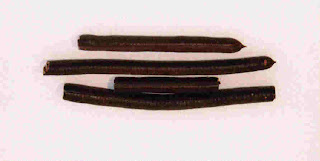Why no direct relationship between price and stocks
A great article by Keith Weiner explaining why open interest in gold has fallen but in silver it has increased - hint: to do with profit from carrying gold. Apart from that, it is also useful for those who falsely think that if the price goes up (or down) then open interest should increase (or fall), and also that ETF holdings should increase (or decrease).
It does puzzle me why people think there should be a direct relationship between open interest or ETF stocks and price, given that they don't have any problem understanding that the price of a company's shares can go up and down while the number of shares on issues doesn't change.
For a company ownership of shares is just transfered between buyer and seller and that doesn't drive price. Price is a function of there being more buying pressure resulting in buyers not being willing to sit around waiting for people to accept their bids and instead accepting seller's offers (and vice versa).
The same can happen with precious metal ETFs. ETFs shares are only created or redeemed if the person on the other side of the trade is someone with no interest in the ETF (ie a market maker). Where existing holders sell to new buyers no new shares need to be created, yet the price can still go up if the buyers are willing to accept the seller's offers (and the non-market maker sellers are adjusting their offers to match gold prices on Comex or the spot market.
Also, check out Warren's latest bullion bars project post, where he notes that 70% of bars added to GLD during 2013 where previously in the GLD list, demonstrating that "there is a really large stock of gold in London and that it doesn't necessarily all vanish instantly to China". He also predicts the return of specific bar numbers by July 30th - now that's a real forecast, no vague hedged cop out wording.

Comments
Post a Comment